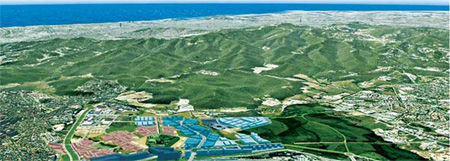Long history of vibrant global business
Forming strategic links
The city has already attracted hundreds of multinational corporations, and business owners are now seeking Chinese collaborations.
Catalonia would be an ideal base for Chinese companies wanting to move production closer to Europe, Carod-Rovira said, noting the region is home to a key Mediterranean port.
Josep Huguet, Catalan Minister of Innovation, Universities and Enterprises, similarly touted the area's advantages.
Catalonia has a wide range of facilities and services to support new businesses, he said. Companies have easy access to international transport networks, and can benefit from consolidated industrial clusters.
A new focus on research and development (R&D) has helped investment in the sector increase by 13.7 percent per annum.
"There are 3,500 multinational corporations in Catalonia, and almost 1,000 have production plants. Others, such as Microsoft and Hewlett Packard, have R&D lines," Huguet said.

"The region has a very strong education system, and attracts top quality personnel," he continued.
"We have a network of internationally renowned research centers - the result of an R&D agreement between several universities, corporations, political parties and city councils."
Huguet also noted that Catalan businesses were world leaders in urban management, climate change initiatives and renewable energy. He hoped his region could set an example for other areas wishing to become more eco-friendly.
Top knowledge centers
Catalonia has four research institutions ranked among the top 100 in the world. It also houses six of Spain's top 10 universities.
While all welcome international students, the University of Barcelona is striving to attract those from China.
The UB currently has eight exchange programs with universities and institutions in China, allowing more than 300 Chinese nationals to pursue degrees in Spain.
"With just under 65,000 students and more than 500 programs of study, the university is at the heart of Barcelona and the business community," said UB Rector Ddac Ramrez i Sarri.
"Since 1992, University of Barcelona researchers have cooperated with local private and public firms. Emphasis has been placed on health and the biosciences, but we are encouraging projects in the social sciences and humanities," Ramrez continued.
Such projects involve close collaboration with the city council, local authorities and the Catalan government. They focus on tourism and urban economic issues.
 |
| Parc de l'Alba: A competitive, world-class base for knowledge and technology firms seeking expansion in Europe. |
 0
0 






